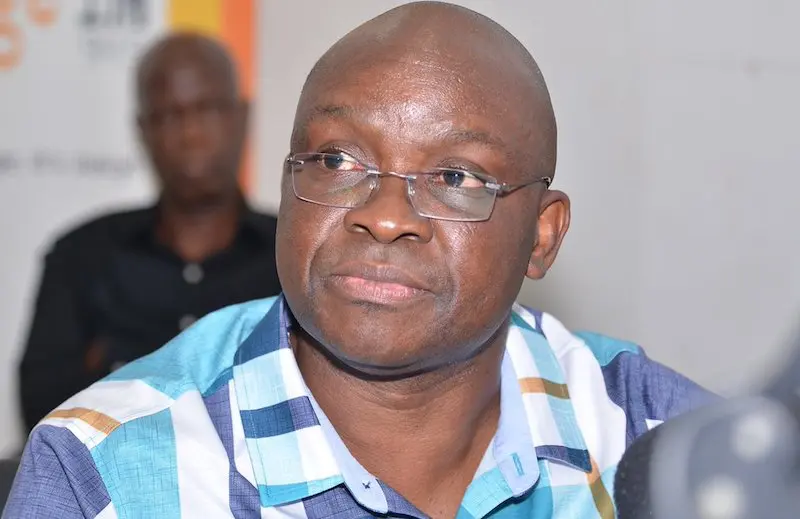The Peoples Democratic Party (PDP) has a new acting National Chairman, Mohammed Abdulrahman, following the suspension of Umar Damagum from office by the Sam Anyanwu-led faction. Abdulrahman’s appointment comes after the PDP National Working Committee (NWC) suspended several high-ranking officials, including Anyanwu, for one month, in compliance with a court ruling that halted the party’s planned national convention.
Former Governor of Ekiti State, Ayodele Fayose, has congratulated Abdulrahman on his emergence, urging him to prioritize peace and reconciliation within the party. Fayose stated that the PDP needs direction and that Abdulrahman’s leadership presents an opportunity for the opposition party to regain focus and restore confidence among its members nationwide. He emphasized the need for the party to heal from within in order to reclaim its place in Nigeria’s political landscape.
Fayose also called on Abdulrahman to address “injustices and irregularities” in certain state chapters, including Ekiti, in line with the party’s constitution and relevant court judgments. This move is seen as an attempt to unify the party and resolve internal conflicts that have plagued the PDP in recent times.
The leadership crisis in the PDP has been ongoing, with various factions vying for control. The suspension of Damagum and other officials has created a power vacuum, which Abdulrahman’s appointment aims to fill. As the new acting chairman, Abdulrahman faces the task of reconciling the party’s factions and restoring confidence among its members.
The PDP’s internal conflicts have significant implications for Nigeria’s political landscape, as the party is one of the main opposition groups in the country. The party’s ability to unify and present a strong challenge to the ruling party will depend on Abdulrahman’s ability to lead effectively and address the internal conflicts that have hindered the party’s progress. With the party’s national convention on hold, Abdulrahman’s priorities will be closely watched by party members and political observers alike.
